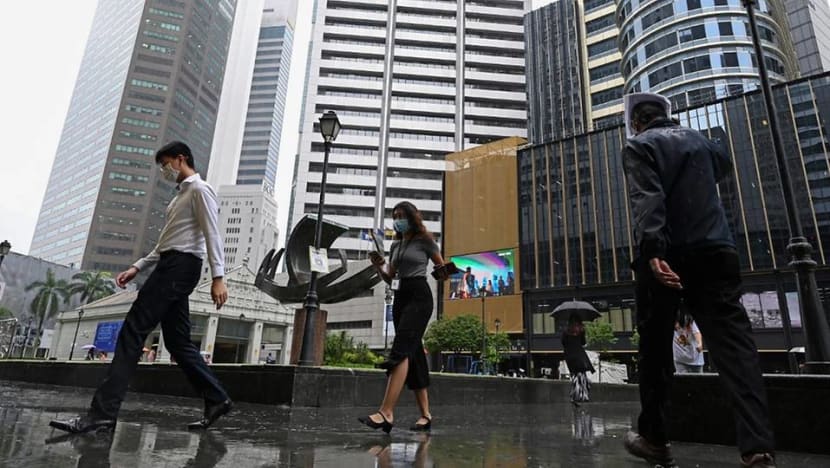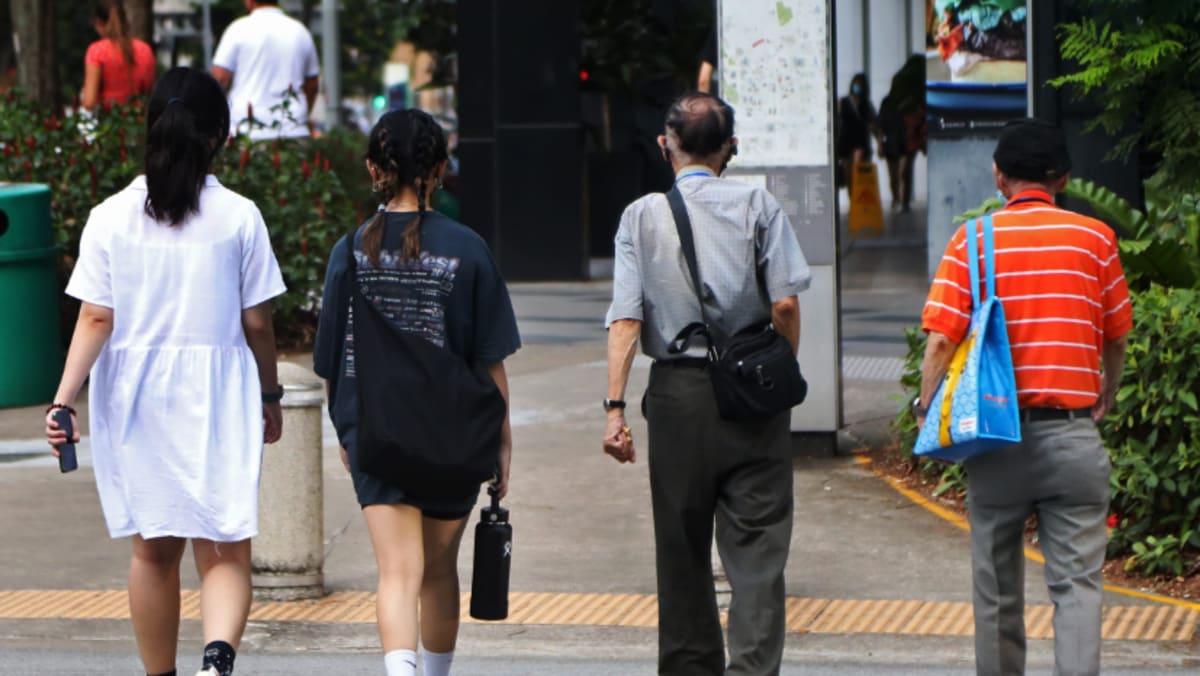Economic Outlook 2025: Are Singaporeans Preparing for a Recession? Insights into Changing Consumer Sentiment
TLDR;
With concerns around inflation, rising costs, and a potential global recession, Singaporeans are becoming more cautious about their spending. According to recent surveys, nearly half of the population believes the global economy will fall into a recession, while a growing number are prioritising financial security over discretionary expenses. Younger generations, however, show more optimism about economic resilience than their older counterparts. Here's a closer look at how this shift in consumer sentiment is reshaping spending habits in Singapore.
Rising Economic Fears Trigger a Shift in Singaporeans' Spending Habits
As Singapore faces a turbulent global economy characterised by rising inflation, fears of recession, and growing uncertainty, more and more Singaporeans are reassessing their spending habits. The rising cost of living is making an impact, with consumers feeling the squeeze in their wallets and adjusting financial priorities.
The most recent YouGov survey (June 2025) sheds light on the growing concerns over both global and local economies, revealing a cautious outlook among the population. Despite Singapore’s resilience in the face of global challenges, the mood among consumers is one of restraint, with many turning to more prudent financial planning strategies to protect their financial future.
| Outlook | Domestic Outlook (%) | Global Outlook (%) |
|---|---|---|
| It will undergo a recession | 25% | 45% |
| It will experience positive growth | 18% | 15% |
| It will remain stable and unchanged | 30% | 15% |
| Don’t know / I can’t tell | 27% | 25% |

What Are Singaporeans Concerned About?
According to the latest data from YouGov, nearly half (45%) of Singaporeans believe the global economy will fall into a recession within the next six months. This concern is further reflected in domestic sentiment, with 25% expecting Singapore to undergo a recession. Meanwhile, 30% believe the economy will remain stable and 18% foresee growth.
This cautious approach comes amid the backdrop of rising inflation, escalating energy costs, and uncertainties stemming from global political tensions. Economists suggest that inflation, particularly in essentials like food, fuel, and housing, is pushing many Singaporeans to rethink their discretionary spending.
In a conversation with Channel NewsAsia, OCBC economist Selena Ling noted, "Households are feeling the pressure, particularly in discretionary spending categories like dining out and entertainment." This sentiment is echoed by the findings in the YouGov survey, which highlight how the majority of respondents are increasingly focused on savings and financial security.
Based on a recent YouGov survey (June 2025), cost of living it the top concern of Singaporeans in the next six months.
| Concern | % of Respondents |
|---|---|
| Cost of living | 83% |
| Job security and unemployment | 45% |
| Economic growth and stability | 41% |
| Global trade tensions (e.g. US tariffs) | 37% |
| Healthcare accessibility and affordability | 35% |
| Housing affordability and availability | 32% |
| Elderly care and ageing population | 25% |
| Geopolitical tensions and armed conflict | 25% |
| Government transparency and accountability | 23% |
| Environmental sustainability and climate change | 21% |
| Social inequality and support for lower-income groups | 19% |
| Immigration and population growth | 18% |
| Crime and public safety | 16% |
| Civil liberties and freedom of speech | 7% |
| None of the above | 3% |
How Are Singaporeans Adjusting Their Spending?
As the survey points out, the priority for many Singaporeans is to reduce expenditure in non-essential categories. Notably, 25% of respondents plan to cut back on dining out, while 23% will reduce spending on indulgent foods and drinks. 20% are also scaling back on food delivery services.
These shifts in spending are indicative of a broader trend towards saving more and investing in long-term financial security. With the rising cost of living impacting disposable incomes, many consumers are opting for more sustainable, cost-effective alternatives.

Key Spending Adjustments:
-
Dining Out: 25% plan to cut back on eating out
-
Indulgent Foods & Drinks: 23% plan to reduce spending in this area
-
Food Delivery Services: 20% are scaling back on food delivery
-
Entertainment & Luxury Goods: 18-21% plan to reduce spending on entertainment and luxury goods
Generational Divide in Economic Outlook
While concerns over the economy are widespread, there is a notable difference in how younger and older generations perceive the future.
Gen Z (those aged 18-24) and Millennials (25-39) appear to have a more optimistic outlook compared to older generations. Nearly 29% of Gen Z and 26% of Millennials anticipate economic growth in Singapore, despite the global uncertainty. These younger groups seem to trust in the country’s ability to weather the storm, backed by Singapore's robust economic policies and innovation-driven industries.
However, Gen X (40-54) and Baby Boomers (55+) remain more cautious, with 29% of Gen X expecting a recession, and Baby Boomers placing more focus on issues such as healthcare affordability and elderly care. This generational divide is crucial for understanding how different age groups are adapting to the changing economic landscape.
In a report by The Straits Times, senior economist at UOB Dr. Ho Woei Chen commented, "While younger generations are more hopeful about the economy’s long-term outlook, older generations tend to focus on the immediate implications, especially with healthcare costs on the rise."
Practical Insights for Singaporean Consumers
Given the current economic climate, it is essential for Singaporeans to consider practical strategies to manage their finances:
-
Focus on Emergency Savings: With global uncertainty on the horizon, it’s more important than ever to have an emergency fund. Financial experts recommend setting aside at least three to six months' worth of living expenses.
-
Reevaluate Discretionary Spending: Many Singaporeans are already cutting back on dining out, entertainment, and luxury goods. Consider revising your budget to reflect a more frugal approach.
-
Invest in Long-Term Financial Security: While it’s essential to manage daily expenses, long-term investments, such as retirement savings and low-risk financial products, can help provide stability in uncertain times.
-
Plan for Healthcare: Older generations are focusing more on healthcare costs, which may increase as they age. Younger consumers should also consider preparing for healthcare expenses by investing in health insurance and savings plans tailored for future medical needs.
-
Diversify Income Sources: The future of job security remains uncertain, and many are turning to side gigs or investments to supplement their primary income. Diversifying income streams can provide an added layer of financial protection.

Final Thoughts
While Singapore’s economy is poised to remain resilient, consumer sentiment is cautious, and many are tightening their belts in anticipation of a global recession. Younger generations may be more optimistic about the economy’s recovery, but all age groups are becoming more conscious of their financial security. The key takeaway for Singaporeans is to embrace a proactive approach to personal finance: cut back on non-essential spending, save more, and invest wisely to weather the storms ahead.
This is an AI-powered article, curated by The Financial Coconut.
Source & References:
- YouGov Survey , June 2025
- OCBC Economist Selena Ling on CNA
- The Straits Times Report on Generational Outlook
Let us know what you think about this topic, and what do you want to hear next.
You can now be our community contributor and make a pitch to have your favourite personality be on our show.
Join our community group and drop us your insights on this topic.

-3.png?width=50&name=Square%20(2)-3.png)










Let us know what you think of this post